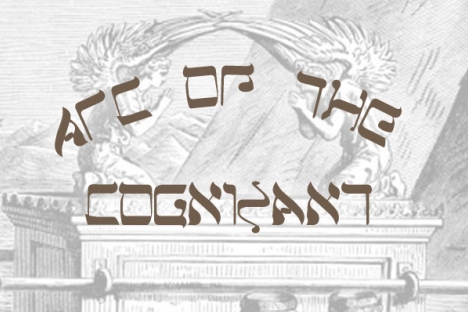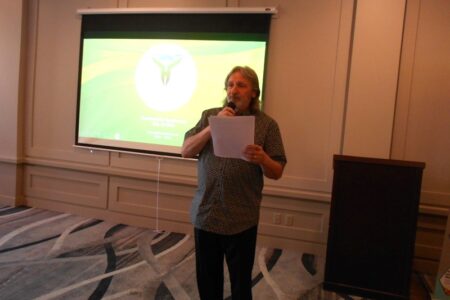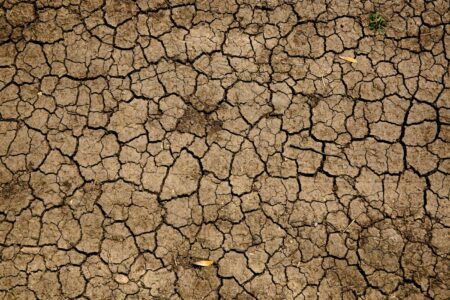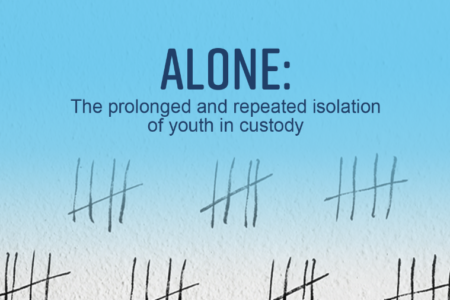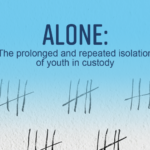COLUMN: Part Three: The West is Best, What do we Owe the Rest?
Part Three
In the two previous editions of the Arc, I have been writing about the recent history of Western global dominance, about reactions to that past, and what it reveals about human consciousness expressed in culture.
Two main authors are my resource for conversation about culture and consciousness in evolution: Robert Bellah and Donald Merlin.
I have also pointed out that today human rights, functioning democracies, rule of law, women’s and minorities progress, and rich, bourgeois societies, replete with scientific resources, are found only in the Western or First World.
Bellah’s research matters
Bellah was known among his peers pre-eminently as a sociologist, of religion and of American intellectual history. The relevant book I’m discussing here is Religion in Human Evolution: from the Paleolithic to the Axial Age; itcontains the phrase “axial age” within its title, and the axial age is definitely a period well-documented by historians and archeologists.
Bellah must write as an historian as well as a sociologist when he makes his arguments about changes in human culture during this period.
The Axial Age ended, and the traditions the great thinkers added to human culture stayed with us, but there was never any guarantee that the moral teaching of those thinkers would indeed revolutionize human behaviour toward less violence and more compassion, though such was their intent. After these great sages taught ethical behaviour, terrible wars waged by conquerors like Alexander the Great, Ashoka, Qin Shuangdi, and Roman Caesars, seemed to indicate that human behaviour was not substantially altered by the new teachings. Wars were constant; human inhumanity to our fellows continued.
Yet without the breakthroughs in the religious cultures of Greece, Israel, India, and China in the Axial Age, who knows how much more horrible our history might have been? Did the breakthroughs, teaching more compassionate behaviour of humans to their fellows, mitigate cruelty in the millennia that came later? There is evidence to support such an interpretation.
Bellah worried about humanity in 2019; he saw little evidence that we are able to avoid more terrible wars and injustice, more devastation to our planet and to other species sharing it with humanity. He certainly had no intention of showing in his book that “progress” in morality had occurred since the Axial Age. He illuminates what was axial about the new insights of the sages but he knows very well that such insights did not bring about an ascent of human moral behaviour that terminated the atrocity and barbarity that went before.
“[T]hose responsible for the most radical breakthroughs were seldom successful. In the short run they usually failed: think of Jeremiah [forcibly exiled], Socrates [executed after trial], Jesus [executed]. Buddhism finally disappeared in India, Buddha’s home ground. Jaspers sums it up starkly:
“ ‘The Axial Period too ended in failure. History went on.’ … [T]hese traditions give us no cause for triumphalism. The failures have been many and it is hard to gauge the successes.
“It is hard to say that we today, particularly today, are living up to the insights of the great axial prophets and sages.” [p. 282]
Merlin Donald: evolution of human cognition and culture
Merlin Donald is a very different sort of thinker from Robert Bellah. Bellah depends substantially on Donald’s work, Origins of Mind: three stages in culture and cognition, for a theory of how Homo Sapiens evolved the consciousness capable of Axial-Age breakthroughs in religious culture. Donald does not depend on Bellah for his theory of evolutionary stages of consciousness.
Donald’s work is very highly regarded by his peers. I am not confident in my own judgement to say why his theory is persuasive, so I will accept the strong recommendation of scientists who are impressed by the work. Donald supplies the neuro-scientific basis for the wonderful originality of the Axial Age thinkers, who – particularly among the Greeks, but in all the four cases Bellah studied – became capable of second-order thinking, theoretic conceptual thinking, only in the first millennium BCE.
When I watched Donald explain his theory in a YouTube video, what stayed in my mind is this reply to a question about why he is concerned about the West and our future: he tells the audience his youthful education was at a Jesuit high school and college, and he is aware that perhaps his values were incorporated there. Professor Donald refers to his individual perspective on what he sees, “living in my own culture, in the English-speaking world.”
Donald ponders the uniqueness of the West, telling his audience, quite rightly, that “the modern world began here — and there has never been any other modernity; therefore we cannot compare ourselves to any other historic case.
Bellah’s personal grounding
I should also outline how Bellah explains his moral compass, as Donald has so explicitly stated in his public appearances. In the conclusion to his book, Bellah is clear about his concerns:
“If there is one primary practical intent in a work like this… it is imperative that humans wake up to what is happening and take the necessarily dramatic steps that are so clearly needed but also at present so clearly ignored by the powers of this earth… If we could see that we are all in this …together, even though we must contend with abiding differences, we might make just a bit more likely the actualization of Kant’s dream of a world civil society that could at last restrain the violence of state-organized societies toward each other and toward the environment.” [p. 602, 606]
Bellah asserts, truthfully in my view, that our Western worldview and its set of theories about what is true, real, and meaningful, have:
“come loose from its cultural context [and] assume a superiority that can lead to crushing mistakes. To assume that ‘we,’ particularly if we mean by that the modern West, have universal truths based on revelation, philosophy, or science that we can enforce on others, is the ideological aspect of racism, imperialism, and colonialism.”
Anti-religion: an attitude problem
The present assumes a superiority to the past all too often, as historians have often noted. Westerners assume an exalted status in the world of values and freedom because of our power and dominance, not because our moral ascendancy is manifest and evident to all observers.
I’m constantly recommending students to read Charles Eisenstein, who emphasizes history as a tale of narratives – The Story of the People – and how stories have dominated human consciousness. His New Story of Interbeing will transform humanity, he believes.
I tell many people about Eisenstein, hoping they will absorb the impact of his warning against how science has separated us from nature — and inclines us to supervise it, manipulate it, make it conform to our purposes. I do not see the resultant breakthrough in understanding other people and cultures that I would like to see. The antipathy of many students to what they imagine religion must be, disturbs me. They are quite submerged in the Old Story and seem unable to let religion’s intrinsic values be recognized.
Anti-religious attitudes are rife in our popular culture, and as Terence McKenna says, if culture is against something, one might well see that something as a positive. Religion is better than many people seem willing to accept as a cultural phenomenon of human society. It is not stupid, awful, misguided, or outmoded. It answers human need; the need is not one that can or should be eradicated by the march of some supposed “superior” form.
Our culture’s makers are our elites, who dominate us in the economy, in politics, and in society. We should be wary of what they tell us is valuable. They intend to maintain their dominance, and culture is a fundamental and formidable instrument for them to that end. Anti-religion is easy, there is so much support for it in various venues of the First World, and therefore I suspect it deeply. This is not synonymous with approving all religions.
Anti-religious prejudice helps a Westerner blame the poor nations for their backwardness whenever those nations have a strong religious culture.
If I have any clear purpose myself in teaching history, it is to make a contribution to solving some problems of modern thinking in popular consciousness. It is hard, as powerful forces of culture are massed against the attitude changes that would end the West’s domineering status.
Dr. Donald’s personal grounding
Merlin Donald demurs when asked to make predictions about the future, but does say “the ecology of belief and action” has altered out of recognition, and is clearly unprecedented; he wonders very much about the ability of our legal, educational and religious institutions/systems to enable us to cope with the present “in a machine-driven distributed system of massive change at such speeds… They are so out of date.”
Donald refers to the West and its historical depths rooted in Christianity, noting his own perspective derives from this cultural origin. We learn values that are “very deeply embedded, that are transmitted in oblique ways we don’t fully understand.” He is asked to comment on the internet, on human narcissism, and why “dark forces” seem to be usurping the online world when that invention once seemed to have started with good intentions.
Donald is questioned about “ethics and responsibility” of individuals, in theory and practice, and whether “machines and the internet” will take those from humans. He replies that other individuals, from different personal origins, might in fact enjoy the brutality and anarchy, the “swashbuckling” and the nastiness, he observes on the internet. But because he has his peculiar personal set of values, Donald cannot celebrate these qualities of the cyber-world.
“I’m giving myself away. I’m concerned because basically I’m a spiritual being concerned with egalitarianism, but not everyone is… because of their cultural situation, the culture in which they’re embedded – a lot of these values are not written down anywhere, they are implicit in rituals and attitudes and celebrations and family attitudes… They’re very deep and they’re almost immovable as we can see in the cases of cultures that resurface a thousand years later, and these basic tendencies are still there…
“Why am I concerned? It’s a give-away of my deep culture, my values, and I think I share that with a lot of Westerners and probably people elsewhere as well – although I don’t know the rest of the world as well [as I know the West].”
What is to be done? Justice after historical injustice
I wrote in the January edition of The Arc about Canada and South Africa sharing a process, involving Natives and Colonists, labelled “Truth and Reconciliation.” Those Canadians who are, as I am, “white” ethnically, whose origins are derived from Europe, must engage in discourse, in cultural processes, in legal and political and economic negotiations, with the people who are aboriginal to this land.
We can be, and I think morally we must be, conscious of historical injustices perpetrated upon the Native peoples. We express an intention to set some of the past “to rights” while we know history can never be undone and it is impossible to go back to an earlier time and replay history.
This is a question to ponder: the moral path to justice for Natives of the New World, New Zealand, Hawaii, and Australia, and for non-European native Palestinians (generally Arabs) in Israel/Palestine/Gaza/West Bank.
Another question about justice is how the First World can make up for its colonial exploitation of Africa, Asia, and the “developing world” generally.
Can Westerners make a meaningful effort to set to right the wrongs of the past committed by our own people, our own former generations, against others?
Reconciliation: how does one set right the wrongs of the past?
I am approaching my conclusions. First, to answer my question in the section title: you cannot change the least thing about the past, but you can change how History is understood, taught, and abused. “History” is what historians produce, it is not all past human doings, it is not the exact picture of all things that happened.
What happened is the past. What is communicated about that is history.
If we cannot forgive the actions of the past that are horrible to contemplate, we probably will have to forget them. Endless emotional reaction to what is beyond changing, surely helps no one.
But, if the reaction fuels motivation to be better, to do better, then by all means — we ought to keep remembering. Remembering truth, not historians’ stories. Historians cannot be the only individuals responsible for finding, verifying, and publicizing truths about our darker pasts; this task has a political goal and requires the driving force of a political body mandated for reconciliation.
Canadians and their governments and corporations can act now to compensate Natives for past injustice. There is a lot more than cultural genocide in residential schools to compensate. There is material loss. My practical offering to Natives would be to stop all Canadian overseas missions for the UN, as armed peacemakers or in combat roles (Afghanistan, Mali, Syrian areas under the IS) and expend all the finances for those missions for the improvement of Native life, such as guaranteeing all reserves will have potable water in 20 years. Treaties in unceded territory must be negotiated, especially in BC.
Natives ought also to have a heavy share of making our immigration policy, since their fortunes will be quite materially impacted by how we populate Canada with people from outside. It was uncontrolled immigration to their land from Europe by white settlers, that ruined Native lives for centuries.
When the question of justice for former colonies of empires comes into focus, Canada has less responsibility for colonial exploitation than the metropolitan center of the empire we belonged to, Britain.
The UK, USA, France, Spain, Portugal, Russia, the Netherlands, Belgium, Germany, and Italy all bear a burden of blame for the underdevelopment of former colonies. Asia, Latin America, and Africa, are continents where the named nations all exercised sovereign power over some portion, and the economic backwardness of former colonies can be proven to be a deliberate policy of the imperial nations. As the centre was enriched, the periphery stagnated. Niall Ferguson disputes some, but not all, of this argument.
“Climate Justice” for the developing world
I hear and read a great deal now about climate justice. It means that the First World has enriched itself by unfettered exploitation of the natural environment and has degraded the air, soil, water, vegetation, and animal species of the world while building the industrial capitalist consumer society – and therefore, in all justice, the First World must do more to combat climate change than the lands still trying to develop along the path of the richest advanced nations.
So Canada should simply, I mean at once, stop being a producer and seller of fossil fuels to the outside world. We can supply Canada, nowhere else. Our petro-resources will stay in the ground, not sold so Albertans or other jobless Canadians can have oil jobs, tax revenue, capitalist development. Justin Trudeau says no nation would leave trillions of barrels of oil in the ground, unsold. Wrong, sir. Canadians can and should do just that. It is only just.
Aid to the “developing world”?
A particularly vexing question for we First World people who know that climate change must force us to stop developing as we used to do: must the peoples of the underdeveloped, formerly colonial, world, remain less affluent than we?
We are rich because we ignored the environment in the past. Now we know better. Can we tell others, in justice, that they must not copy us? China would ignore us, we know, and proceed on its own path, as in the Belt and Road program it now pursues in Asia and Africa.
Having mentioned Chinese investment in “developing” nations, let it be noted that China is not behaving in a more altruistic fashion there than Western capitalist empires did before. China intends first to enrich itself, to benefit its economy and its people, rather than prioritize the good of the underdeveloped.
I am not an advocate for Canada to increase our direct spending in the less-developed lands. It is not our responsibility to do that, whereas the former masters of empire I named above – European, American, and Japanese – do bear a heavy burden of historic responsibility for the underdeveloped lands.
The UN, World Bank, and IMF, all assert an interest in “lifting poor nations out of poverty.” But their models of development are outmoded. They have ignored climate change issues, and when the poor lands want to use coal or cut trees or otherwise damage their ecologies, the rich nations ought not agree in good conscience to help them – yet in fact, capitalists from the rich West have no compunction about such practices. We let the poor lands ruin their natural environments, we ignore their lack of restriction on damaging industries, and we positively help these backward economies by sending our industries there because the profit is higher where the workers accept much-lower pay than in the West. No capitalist will pay Canadian-level wages and benefits to our unionized workforce if he can pay less to Mexicans for work of equal skill.
Peace: no more intervention, no more “help” for one side, in wars abroad
Immediately, Canada ought to stop being an armed intervenor in the wars of other nations: not in civil war, not in revolutions, not in wars between states.
The former empires and their metropolitan powers engage in this all the time, and proxy wars between, for example, the USA and Russia, or the Saudis and Iran, kill and maim thousands every month somewhere in the world. Canada has no role. Afghanistan was a terrible mistake for Canada, our intervention there is indefensible. We were sucked into it by our treaty obligations in NATO, and therefore I advocate that we revoke all such obligations in all our treaties.
The wars in the backward lands of the world will not cease because we do not intervene, but if we used our influence, weak as it is, to push the US, UK, and France to stop interventions, we would be doing good work. And we must also have no part in, do all we can to terminate, the sale of arms and supplies of war to any nation not our own. We must work always within the UN and other agencies to interdict global arms commerce, in both so-called “legitimate” and black markets.
Conclusions: the Tao of not leading
Straight up, I prefer a world where states are very-responsibly focussed inward, with no personnel, money, or material expended in foreign lands. We must stop the pretext of helping, of developing, of leading, other states to what we think is the best future for them. Their governments, their economies, their human-rights codes, social order, and cultural practices may be abhorrent to our way of thinking. But force and capital must not ever be our instruments of change.
Our example alone is permissible in the project of bringing foreign nations into the circle of Western advantages. The UN has worthy ideal intentions, but fails in practice to promote the justice of reversing the consequences of Western imperialism. The West got “ahead” in many measures of a good life, unfairly. We cannot rebalance the injustice by intervention or outmoded development projects. We must for certain slow our own juggernaut economies.
As poor nations try to “catch up” with us, we help with example, and gifts. Our foreign aid was never a gift, historically; we helped only to help ourselves.
The best manual of political advice, of model behaviour in making policy and cultural interventions (known to me) is the Tao Te Ching. Beyond its mystical and often-opaque formulations for leadership of “the people” I will no longer go.
“The Tao that is spoken is not the Tao that is.”


